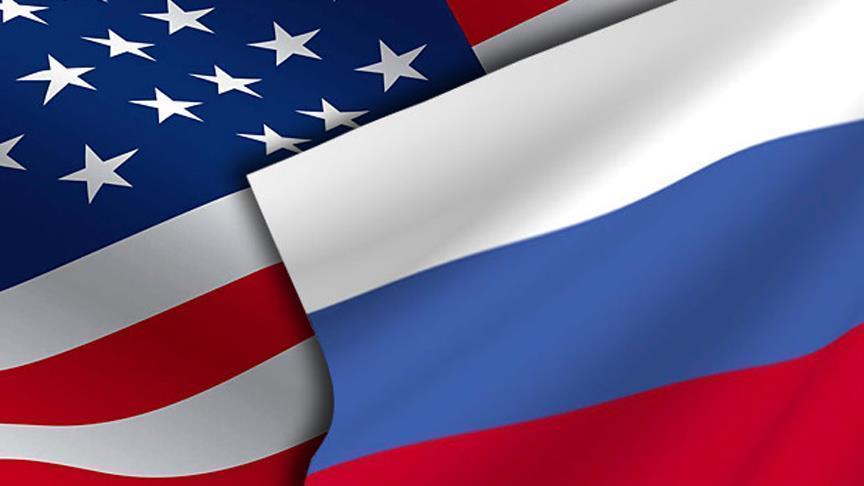Russia on Friday announced the termination of a landmark nuclear arms control treaty with the U.S.
The move comes hours after the U.S. formally withdrew from the Intermediate-range Nuclear Forces (INF) treaty raising fears over the start of a potential arms race.
'On August 2, 2019, at the initiative of the American side, the Treaty between the Union of Soviet Socialist Republics and the United States of America on the elimination of their intermediate-range and short-range missiles, signed in Washington on December 8, 1987, was terminated,' the Russian Foreign Ministry said in a statement.
Describing the U.S. decision 'a serious mistake', the ministry claimed that the main reason of the country's withdrawal was the desire to get rid of the limits set by the treaty.
It said: 'Instead of substantive and professional analysis of counterclaims, the American side put forward obviously unacceptable ultimatum demands to Russia. All the realistic solutions we have proposed, which were based on measures of mutual transparency that could lead to the settlement of the existing problems, have been rejected,' the ministry said.
It also said Washington's call for involving third countries in the treaty was 'unrealistic'.
Russia remains open to 'an equal and constructive dialogue' on restoring confidence and strengthening international security and hope for the responsible approach of the American side, it said.
Meanwhile, Russian Deputy Foreign Minister Sergei Ryabkov said his country is ready to discuss any suggestion and any agreement regarding arms control, but it will not initiate it, as stated by President Vladimir Putin.
'We suggested the U.S. and other NATO countries to consider the possibility of declaring a moratorium on the deployment of intermediate and short-range missiles, similar to the moratorium declared by Vladimir Putin, who said that Russia will refrain from the deployment of missiles until the Americans refrain from deployment of similar missiles,' Ryabkov said.
However, NATO accused Russia for the demise of the treaty.
“Russia today remains in violation of the INF Treaty, despite years of U.S. and Allied engagement, including a final opportunity over six months to honour its Treaty obligations. As a result, the United States decision to withdraw from the Treaty, a decision fully supported by NATO Allies, is now taking effect,” a NATO statement said.
The statement said Russia has shown “no willingness and taken no demonstrable steps to return to compliance with its international obligations”.
'NATO will respond in a measured and responsible way to the significant risks posed by the Russian 9M729 missile to Allied security,' it added.
The INF treaty has been widely seen as a cornerstone of European security in the post-Cold War era after the U.S. and Russia signed it in 1987. It prohibits both countries from possessing and testing ground launch missiles with a range between 300-3,100 miles.
In October 2018, U.S. President Donald Trump announced an exit from the pact, accusing Moscow of violating it.
This February, the U.S. began the process of withdrawing from the INF Treaty to be completed in six months.
In a tit-for-tat response, Russian President Vladimir Putin signed a bill suspending Moscow's obligations under the INF treaty on July 3.
By Elena Teslova in Moscow and Fatih Hafiz Mehmet in Ankara
Anadolu Agency
energy@aa.com.tr


